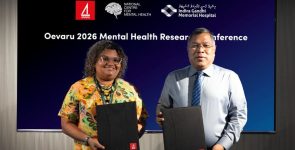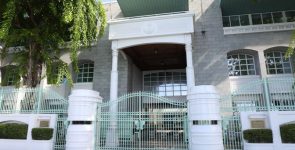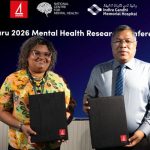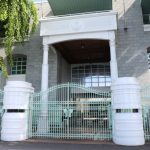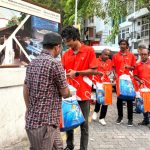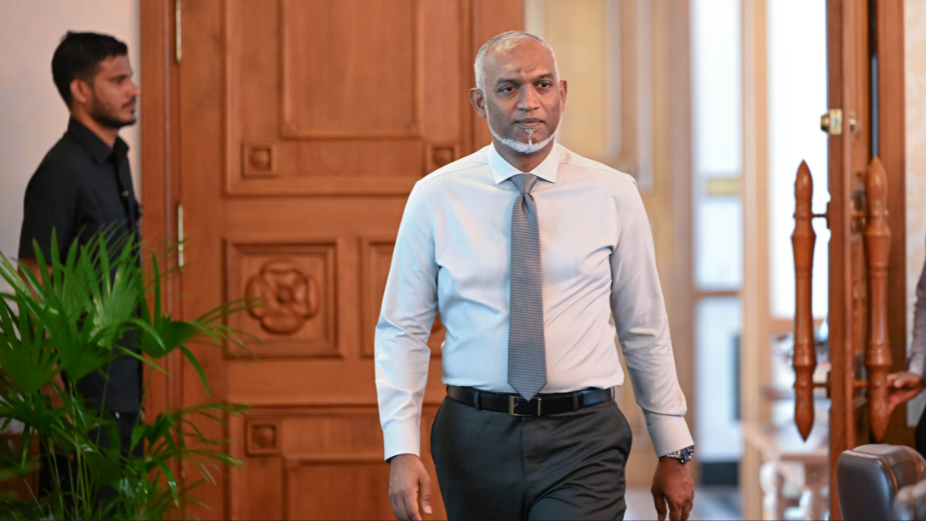
In a recent interview with Sangu TV, President Dr. Mohamed Muizzu reaffirmed his administration’s commitment to fostering sustainable development in the Maldives, citing efforts to build a robust economic foundation for the medium and long term. While highlighting several initiatives to strengthen the economy, his remarks also raised questions about the feasibility and broader implications of these plans.
Economic Stability and Monetary Policy
President Muizzu emphasised that his government is focused on strengthening the economy without resorting to printing money, which he dismissed as a viable option for economic stability. Instead, he pointed to ongoing legal and systemic reforms aimed at increasing the dollar supply and improving foreign exchange reserves. The President projected an improvement in reserves soon, suggesting that financial support to workers, companies, and small and medium enterprises would continue in the coming months, with a goal to clear pending payments by the end of November.
However, critics argue that the current economic challenges in the Maldives—marked by high levels of debt and limited revenue streams—require more than just reforms aimed at boosting dollar reserves. The country’s reliance on external aid and foreign loans, especially from countries like China and India, has been a concern for some, who warn of a potential debt trap if not managed carefully.
Investments in Key Sectors
President Muizzu outlined several areas of focus, including significant investments in the fisheries sector, where billions of Rufiyaa have been allocated to support fishermen and develop new processing facilities. He also highlighted the nearing completion of the Velana International Airport expansion and the development of additional resorts, which he believes will further aid economic recovery.
While these developments are seen as positive steps towards enhancing economic resilience, there is debate about whether the focus on tourism and fisheries alone is sufficient for long-term economic stability. Some experts suggest that diversification beyond these sectors is crucial to mitigate risks associated with global economic fluctuations and climate change impacts.
Infrastructure Development and Foreign Relations
Addressing infrastructure needs, President Muizzu announced plans for a major project in Malé City, funded through Chinese grants, aimed at addressing road infrastructure issues. He also acknowledged contributions from both China and India in supporting economic stability and creating various opportunities for the Maldives.
The President noted that large-scale projects require careful preparation and time, and assured that progress is being made behind the scenes. However, sceptics would question the transparency and inclusiveness of these preparations, calling for more public engagement and oversight to ensure that such projects benefit the broader population.
Broader Economic Reforms
President Muizzu also touched on broader economic reforms, including the planned merger of certain state-owned enterprises. He suggested that these reforms are part of efforts to stabilise the economy and enhance operational efficiency. While mergers may lead to cost savings and improved performance, there are concerns about potential job losses and the need to balance economic efficiency with social equity.
The President’s international visits were also highlighted as key to stabilising the country’s economic and diplomatic standing. He claimed that foreign relations have improved considerably, creating a stronger foundation for economic growth. However, the real impact of these visits and agreements on the Maldivian economy remains to be fully realised and assessed.
President Muizzu’s vision for the Maldives focuses on sustainable development, economic reforms, and enhanced foreign relations. While his government has laid out ambitious plans, achieving these goals will require careful navigation of domestic challenges, economic vulnerabilities, and geopolitical dynamics. Moving forward, the emphasis must be on ensuring that development efforts are inclusive, sustainable, and transparent, balancing short-term gains with long-term resilience.




